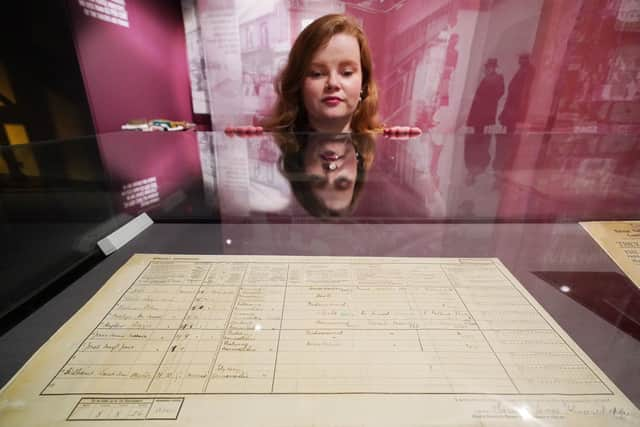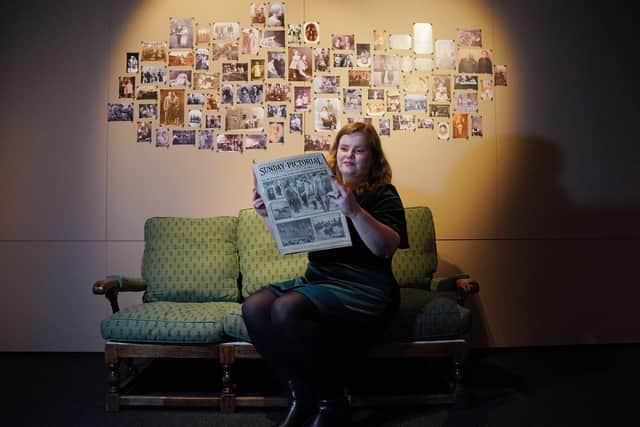The decade of decadence comes under the spotlight in a new National Archives exhibition
But a century on, the hidden facets of life through the 1920s is being laid back with a look back at the social history of the time.
Researchers from The National Archives have delved back into documentation from the 1921 Census to lay bare the polarising social issues and political demonstrations which were grappled with as frequently as new fashion and rising hemlines.
Advertisement
Hide AdAdvertisement
Hide AdDrawing on The National Archives’ vast collection of records, artefacts and the knowledge of its historians, a new exhibition, called The 1920s: Beyond the Roar, will challenge some of the era’s stereotypes and go beyond ‘The Roaring Twenties’.


Excitement, social change and champagne-fuelled defiance were seen as defining the decade, sandwiched between two world wars with a population recovering from the Spanish Flu pandemic.
Highlights of the exhibition include The Equal Franchise Act of 1928 and a draft of the new elector registration form adding female pronouns.
The head of events and exhibitions at The National Archives, Steve Burgess, said: “The exhibition forms part of a wider public engagement programme, 20s People, which also comprises a series of online and onsite events, learning resources and digital activities with which audiences around the world can engage.
Advertisement
Hide AdAdvertisement
Hide Ad“Connecting people of the 1920s with audiences of the 2020s, the programme explores the stories of individuals learning to live after the trauma of a world war, suffering and surviving through a global pandemic and embarking on a new era where everyday rights and roles were changing.


“Then, as now, status and identity regularly impacted life experience while new spaces and development represented wider changes in society.
“Visitors will feel inspired by the battles people fought and begin to consider history and archives as a way to understand the world today.”
Visitors to the exhibition, which opens on Friday, January 21, at The National Archives in Kew in London, will encounter stories tied to buildings and places, including a newspaper stand, a polling station, a draper’s shop and a 1920s’ home.
Advertisement
Hide AdAdvertisement
Hide AdObjects on display include early Chanel dress fabrics and geometric patterns beside more traditional chintzes and paisleys, including some on display for the first time.
While these samples show how women’s clothes operated as a barometer of change, family photos illuminate how a new concern for public health and morality impacted many aspects of domestic life.
A reimagining of the infamous Soho venue, The 43 club, will be the climax to the exhibition, drawing on reports from police raids to tell the stories of the venue owned by ’nightclub queen’ Kate Meyrick.
Real stories are evidenced by historical documents that draw out glitzy and gritty accounts of The 43 and its staff and clientele, who ranged from film stars and gangsters to Italian waiters and East End dancers.
Advertisement
Hide AdAdvertisement
Hide AdThe 1920s: Beyond the Roar exhibition is part of a wider initiative that shares stories from one of the defining decades of the 20th century.
The 20s People project will feature exhibitions and events from The National Archives.
Guest speakers will cover themes as diverse as 1920s’ fashion, life after the First World War and the experience of a global pandemic. There will also be online guides on researching family histories and using census records.